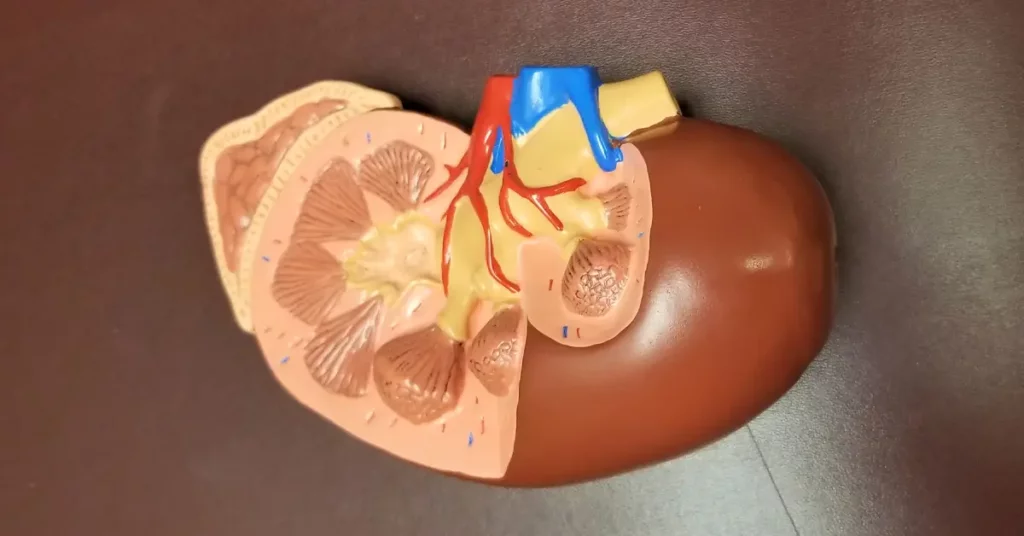Chronic Kidney Disease (CKD) is a life-threatening condition that affects millions of people worldwide. As the disease progresses, it can cause serious health problems, including kidney failure and cardiovascular disease. Managing CKD at an early stage is crucial in order to maintain the quality of life for those who are affected by the disease. One of the key tools for managing CKD is Remote Patient Monitoring (RPM), which enables doctors to monitor the health of their patients remotely in real-time. In this article, we will discuss the importance of managing CKD stage 3, as well as tips and strategies for effectively managing the disease.
Stages of Chronic Kidney Disease
CKD is a progressive disease that typically develops over a period of several years. The National Kidney Foundation has defined five stages of CKD, based on the decline in kidney function.
- Stage 1 CKD: At this stage, there are usually no symptoms and the individual may not even know they have the disease. The only sign may be slight abnormalities in lab results.
- Stage 2 CKD: At this stage, kidney function is slightly decreased, but still normal. There may be some abnormalities in lab results, but no symptoms are present.
- Stage 3 CKD: This stage is further divided into two sub-stages, stage 3A and stage 3B.
- Stage 3A CKD: At this sub-stage, there is kidney damage with mild to moderate loss of kidney function. The individual’s estimated glomerular filtration rate (eGFR) is between 45-59 ml/min/1.73m2.
- Stage 3B CKD: At this sub-stage, there is kidney damage with moderate to severe loss of kidney function. The individual’s eGFR is between 30-44 ml/min/1.73m2.
In both sub-stages, the individual may have symptoms such as fatigue and decreased appetite. It is critical to identify and manage CKD at this stage as it is still possible to slow down the progression of the disease and prevent serious complications such as kidney failure and cardiovascular disease.
- Stage 4 CKD: At this stage, the kidneys are severely damaged, and the individual may have symptoms such as nausea, vomiting, and difficulty sleeping. It is important to manage the disease at this stage to prevent serious complications such as kidney failure.
- Stage 5 CKD: This is the final stage of the disease, also known as end-stage renal disease (ESRD). The individual’s kidneys are no longer able to function and they will require dialysis or a kidney transplant in order to survive.
It is important to note that the stages of CKD are not necessarily linear, and an individual’s condition can fluctuate between stages. Regular check-ups and monitoring of kidney function are crucial in order to effectively manage the disease, especially in stage 3 where early detection and management can greatly improve a patient’s quality of life. It is also important for you to talk to your doctor and take an active role in managing your disease. This may include monitoring vital signs, making adjustments to treatment plans, and considering options such as RPM technology. By taking these steps, you can slow the progression of your disease and prevent serious complications.
Managing Chronic Kidney Disease Stage 3
Monitoring Vital Signs
It is important to keep track of vital signs such as blood pressure, heart rate, and weight in order to gain insight into the progression of the disease. High blood pressure is a common complication of CKD and can lead to serious complications such as heart disease and stroke. Therefore, monitoring blood pressure regularly and taking appropriate measures to control it is crucial in managing this chronic disease.
Adjusting Treatment Options and Lifestyle Changes
As the disease progresses, treatment plans and lifestyle changes may need to be adjusted in order to continue slowing down its progression. This may include changes to medications, diet, and exercise plans, as well as quitting smoking, maintaining a healthy weight, and controlling blood sugar levels. It is important to work closely with your doctor to determine the best course of action and make necessary adjustments to treatment plans and lifestyle changes to help slow the progression of CKD stage 3.
Collaboration with Healthcare Professionals
Managing CKD stage 3 requires close collaboration between you and your healthcare provider. Regular check-ups and follow-up appointments are crucial in order to monitor the progression of the disease and make any necessary adjustments to treatment plans. By working closely with your doctor, you can take an active role in managing your disease.
Remote Patient Monitoring for Stage 3 Chronic Kidney Disease
Remote patient monitoring (RPM) is an essential tool for managing CKD and helping you maintain their quality of life. DrKumo offers RPM technology solutions that allow healthcare providers to keep track of their patients’ progress and make modifications to their treatment options, reducing the need for the patient to be readmitted. RPM devices allow you to monitor yourself by taking measurements at home and then electronically submitting the information to their healthcare providers.
Benefits of Using RPM Technology for Managing Stage 3 CKD
Using RPM technology can provide numerous benefits for managing stage 3 kidney disease. These include:
- Real-time monitoring: RPM allows healthcare providers to monitor their patients’ health in real-time, providing important information about the progression of the disease.
- Early detection of complications: By monitoring vital signs and other important indicators, RPM can help detect complications early, allowing healthcare providers to take appropriate action.
- More efficient treatment: By providing real-time information about the progression of the disease, RPM can help healthcare providers make more informed decisions about treatment options, leading to a more efficient care for the patient.
- Improved quality of life: By providing more effective management of the disease, DrKumo as the leading provider of RPM offers a comprehensive approach to patient care, utilizing remote monitoring, patient education, and real-time communication with healthcare providers to improve patient outcomes and quality of life.
Takeaways
Managing stage 3 of chronic kidney disease is crucial for maintaining a patient’s quality of life. By monitoring vital signs such as blood pressure, heart rate, and weight, and making adjustments to care protocols including lifestyle changes, you can slow the progression of kidney disease and prevent serious complications. Collaboration with healthcare professionals and regular check-ups are essential for effectively managing CKD stage 3. Remote Patient Monitoring (RPM) can also be a useful tool for tracking progress and adjusting the course of treatment. By taking these steps, you can improve your quality of life and avoid serious complications associated with the disease.
Do not delay, contact DrKumo now to discover more about how their Remote Patient Monitoring technology can assist you in managing your chronic kidney disease.









